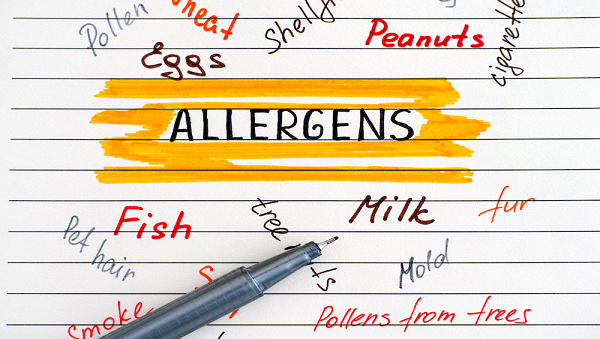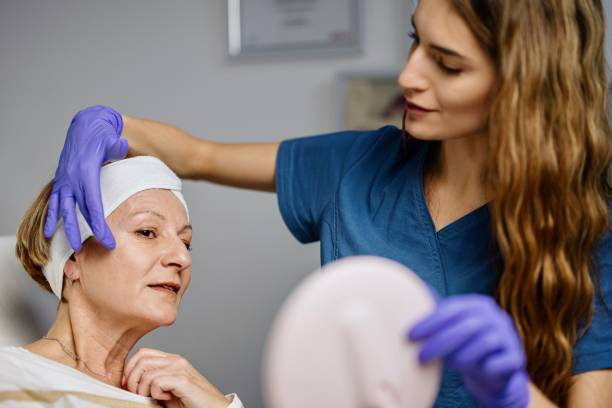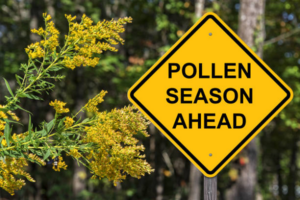What to Expect from Your First Jeuveau Treatment
Jeuveau offers a modern solution for smoothing fine lines and wrinkles, giving you a refreshed, natural look with minimal downtime. If you’re trying Jeuveau for the first time, knowing what to expect can help you feel more confident about your treatment.
Your appointment starts with a personalized consultation, where your provider will assess your facial structure and discuss your aesthetic goals. This is the perfect time to ask questions, understand how Jeuveau works, and ensure the treatment aligns with what you’re looking to achieve.
If you’ve used Botox before, Jeuveau works in a similar way. Both are FDA-approved neurotoxins that relax facial muscles to soften wrinkles caused by repetitive expressions like frowning or squinting. Often referred to as “Newtox,” Jeuveau was specifically formulated for aesthetic treatments. Some patients notice a smoother application or faster onset, but individual experiences vary.
Once you’re ready, the provider will cleanse the treatment area and mark precise injection points. Using a fine needle, they will quickly administer Jeuveau with minimal discomfort—most describe it as a slight pinch. The entire process takes just minutes, allowing you to return to your daily activities immediately.
Following treatment, mild redness or slight swelling may appear but usually fades within a few hours. Over the next few days, Jeuveau gradually takes effect, smoothing lines and enhancing your features. Most patients see improvement within three to five days, with full results visible after about two weeks.
To maximize results, follow your provider’s aftercare instructions. Avoid rubbing the treated area and skip intense workouts for the first 24 hours. Your refreshed look can last several months, and touch-up appointments help maintain a smooth, youthful appearance.
For those new to Jeuveau, the experience is simple, comfortable, and effective. With expert guidance and a quick procedure, it’s an easy way to achieve a more youthful, relaxed look—without interrupting your routine.
Weight, Wellness and Why Finding Your Ideal Weight is Key to Women’s Health
As we take time to recognize Women’s Health Month, it’s a great opportunity to reflect on the habits that support lifelong well-being. One of the most essential factors in women’s health is maintaining a balanced weight. A healthy weight isn’t just about appearance. It plays a vital role in energy levels, mobility, heart health, and hormonal balance. For women of all ages, understanding what a healthy weight means and how to achieve it can be life-changing.
The Role of Weight in Overall Health
Your weight impacts nearly every system in the body. Carrying excess weight can increase the risk of chronic conditions like heart disease, diabetes, and joint pain. On the other hand, being underweight can lead to weakened immunity, fatigue, and hormonal imbalances.
The key to wellness isn’t about extremes. It’s about balance. Maintaining a healthy weight helps regulate metabolism, supports muscle strength, and improves overall longevity.

The Connection Between Weight, Heart Health & Hormones
Women’s health is deeply influenced by weight-related factors. The heart, for example, works harder when there’s extra weight to carry. High blood pressure, cholesterol imbalances, and increased inflammation are common issues that arise from excess weight, making heart health an essential consideration.
Hormones also play a role in weight regulation. Insulin resistance, estrogen fluctuations, and thyroid function all contribute to how women gain and lose weight. As metabolism naturally shifts with age, understanding these biological processes can help in making informed decisions about long-term health.
Finding a Sustainable Path to a Healthy Weight
There’s no one-size-fits-all approach to weight management. Some women achieve balance through nutrition and movement, while others may struggle with metabolic challenges that make weight loss difficult.
For those who find conventional approaches ineffective, medical intervention can be a valuable option. Community Quick Care offers Semaglutide, a clinically supported medication that aids in weight management for individuals who need extra support in achieving a healthy weight.
If you’re looking for a way to improve your health while addressing weight concerns, exploring solutions like Semaglutide through Community Quick Care may be worth considering.
The Science Behind Jeuveau: How It Smooths Wrinkles and Fine Lines
Wrinkles—they’re a natural part of aging, but that doesn’t mean we have to embrace every crease that shows up. Thanks to modern science, Jeuveau, an advanced alternative to Botox, has become one of the most effective ways to smooth out fine lines and restore a youthful appearance. But have you ever wondered how it actually works? Let’s break down the science behind this treatment and why it’s a game-changer for wrinkle reduction.
The Magic Behind Jeuveau
Jeuveau works by temporarily relaxing the muscles that cause wrinkles. Many facial wrinkles form due to repeated muscle movements—think smiling, frowning, squinting, or raising your eyebrows. Over time, these expressions create permanent creases in the skin, especially in areas like the forehead and around the eyes.
When Jeuveau is injected, it blocks signals from the nerves to the muscles, preventing them from contracting. This allows the skin above those muscles to relax, softening wrinkles and giving a smoother, refreshed appearance. The result? A natural, youthful look—without looking “frozen” or overdone.

Where Jeuveau Works Best
Jeuveau is particularly effective on dynamic wrinkles, which are caused by repetitive muscle movements. The most common treatment areas include:
- Forehead lines – Smooths horizontal creases caused by raising your brows.
- Frown lines (between the eyebrows) – Reduces the deep “11” lines from furrowing your brows.
- Crow’s feet – Softens fine lines around the outer corners of the eyes caused by smiling.
- Bunny lines – Eases wrinkles on the sides of the nose.
What to Expect From a Jeuveau Treatment
Jeuveau injections are quick, virtually painless, and require no downtime—you can fit them into your lunch break and go back to your day as usual. The effects typically start showing within a few days, with full results in about two weeks. The smooth, wrinkle-free look lasts around 3 to 4 months, after which touch-ups can help maintain your refreshed appearance.
Community Quick Care: Bringing You the Best in Facial Rejuvenation
At Community Quick Care, we’re proud to offer Jeuveau treatments designed for natural-looking results. Whether you’re new to these treatments or a long-time fan, our expert team ensures a comfortable experience with subtle, refined enhancements.
Say goodbye to deep-set lines and hello to a refreshed, confident look. Book an appointment today with Community Quick Care and discover the power of Jeuveau for yourself!
Simple Daily Habits to Keep Stress in Check
Life can be overwhelming at times, and stress often feels inevitable. But managing stress doesn’t have to be complicated—you can start with a few simple daily habits that make a big difference over time. During Stress Awareness Month this April, Community Quick Care encourages you to embrace small, sustainable changes to improve your mental and physical well-being.
Start Your Day with Intention
How you begin your morning sets the tone for the rest of your day. Take a few minutes to practice mindfulness, whether that’s through deep breathing exercises, stretching, or simply sipping your coffee without distractions. These moments of calm can help you approach the day with a focused and grounded mindset.
Keep Moving Throughout the Day
Physical activity is one of the most effective ways to combat stress. You don’t need a gym membership or hours to spare—even a short walk or a few stretches can boost your mood and reduce tension. At Community Quick Care, our team emphasizes the importance of exercise in managing stress and promoting overall health. We’re here to help you incorporate movement into your routine in ways that work for you.
Stay Hydrated and Nourished
What you put into your body impacts how you feel. Prioritize hydration and aim for balanced, nutritious meals to keep your energy steady and your stress levels in check. If you have concerns about your diet or how it may affect your health, Community Quick Care can guide you with personalized advice during your visit.

Take Mental Breaks
It’s easy to feel bogged down by responsibilities, but taking short breaks can refresh your mind and help you stay productive. Whether it’s stepping outside for fresh air, listening to a favorite song, or engaging in a relaxing hobby, small mental resets can be incredibly effective.
Regular Check-Ups for Peace of Mind
Sometimes stress can manifest in physical symptoms or contribute to long-term health issues. Regular check-ups can serve as a proactive way to monitor your health and catch concerns early. At Community Quick Care, our dedicated providers offer comprehensive physicals and consultations to help you identify stress-related challenges and develop strategies to manage them.
Making these habits part of your daily routine can improve your resilience and help you cope better with life’s demands. Community Quick Care is here to support you during Stress Awareness Month and beyond. Visit us to learn more about managing stress and taking charge of your well-being.
Allergy Testing Myths Debunked: What You Need to Know
Allergy testing is crucial for diagnosing and managing allergic reactions, but many myths and misconceptions surround the process. Understanding the facts can help demystify allergy testing and empower individuals to take control of their health. Let’s debunk some common myths and set the record straight.
Myth 1: Allergy Testing is Painful One common myth is that allergy testing is painful. The truth? Modern methods are designed to be minimally invasive. The skin prick test involves placing tiny amounts of allergens on the skin using a small, painless lancet—more of a tickle than a poke. Blood tests are just like any standard medical test involving a simple blood draw. Overall, allergy testing is a comfortable process that provides valuable insights into your health.
Myth 2: Allergy Testing is Only for Severe Allergies Another misconception is that allergy testing is only for severe allergies. Actually, testing is valuable for anyone with allergy symptoms, no matter how mild. Identifying allergens can help manage symptoms and improve quality of life. Even mild allergies can cause significant discomfort, leading to sneezing, itching, and other unpleasant symptoms. Allergy testing can provide a clear picture of what triggers your symptoms, allowing for better management.
Myth 3: You Can Only Get Tested for a Few Allergens at a Time Some think allergy testing can only assess a few allergens at a time. However, modern tests can evaluate a wide range of allergens simultaneously. Comprehensive panels include common triggers such as pollen, dust mites, pet dander, mold, and various foods. This thorough approach ensures that all potential allergens are identified, helping to develop a holistic management plan tailored to your specific needs.

Myth 4: Allergy Testing is Not Accurate Accuracy concerns often deter people from testing. While no medical test is 100% perfect, allergy testing is highly reliable when done by professionals. False positives or negatives can occur, but these instances are relatively rare. Combining test results with a detailed medical history enhances accuracy, providing a robust basis for managing allergies effectively. Trusting professional testing ensures you get the most accurate results and appropriate treatment.
Myth 5: Home Allergy Tests are Just as Effective as Professional Testing With home testing kits becoming popular, some believe they’re as good as professional tests. While convenient, home kits lack the accuracy and reliability of tests done in a clinical setting. Professional testing provides a controlled environment, expert interpretation, and follow-up care, ensuring the highest standards of accuracy and safety. Relying on home kits alone can lead to misdiagnosis and ineffective management.
At Community Quick Care, we provide accurate and comprehensive allergy testing services. Our healthcare professionals use the latest techniques to ensure a comfortable and reliable experience. We take pride in our personalized approach, tailoring allergy management strategies to meet the unique needs of each patient. Schedule your allergy test with us today and take the first step toward better health.
Understanding the facts about allergy testing can make a significant difference in managing allergic conditions. By debunking common myths, we hope to empower individuals to make informed decisions about their health and seek the care they need. Community Quick Care is here to support you every step of the way.






